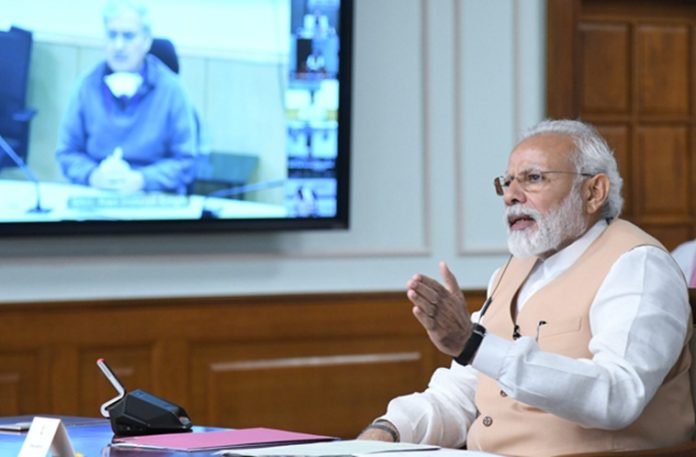New Delhi (NVI): Prime Minister Narendra Modi today shared a post he wrote on LinkedIn, saying that coronavirus has changed the contours of professional life as home has become the new office and internet has become the new meeting room.
“As the world battles COVID-19, India’s energetic and innovative youth can show the way in ensuring healthier and prosperous future. Shared a few thoughts on @LinkedIn, which would interest youngsters and professionals,” PM Modi tweeted while sharing the link of his LinkedIn post.
As the world battles COVID-19, India’s energetic and innovative youth can show the way in ensuring healthier and prosperous future.
Shared a few thoughts on @LinkedIn, which would interest youngsters and professionals. https://t.co/ZjjVSbMJ6b
— Narendra Modi (@narendramodi) April 19, 2020
“It has been a topsy-turvy start to the third decade of this century. COVID-19 has brought with it many disruptions. Coronavirus has significantly changed the contours of professional life. These days, home is the new office. The Internet is the new meeting room. For the time being, office breaks with colleagues are history,” the Prime Minister wrote in his LinkedIn post.
He said that he has been adapting to these changes. “Most meetings, be it with minister colleagues, officials and world leaders, are now via video conferencing,” he wrote.
The PM further said that in order to get ground-level feedback from various stakeholders, there have been videoconference meetings with several sections of society. “There were extensive interactions with NGOs, civil society groups and community organisations. There was an interaction with Radio Jockeys too,” PM writes.
Sharing the post on the fifth day of extended lockdown, the Prime Minister also pitched for innovative ways of continuing work while following social distancing.
“One is seeing the ways through which people are continuing their work in these times. There are a few creative videos by our film stars conveying a relevant message of staying home. Our singers did an online concert. Chess players played chess digitally and through that contributed to the fight against COVID-19. Quite innovative!” he wrote.
“The work place is getting Digital First. And, why not?” PM wrote.
PM further said that the transformational impact of technology often happens in the life of poor. He gave the example of his government’s effort in 2014 to connect such people through Jan Dhan Account, Aadhar and mobile number.
“This seemingly simple connection has not only stopped corruption and rent seeking that was going on for decades, but has also enabled the Government to transfer money at the click of a button. This click of a button has replaced multiple levels of hierarchies on the file and also weeks of delay,” PM said.
“India has perhaps the largest such infrastructure in the world. This infrastructure has helped us tremendously in transferring money directly and immediately to the poor and needy, benefiting crores of families, during the COVID-19 situation,” he added.
Apart from changing work culture, PM also mentioned about education sector, saying that “invigorating technology in this sector has its benefits.”
The PM gave example of DIKSHA Portal, to help teachers and boost e-learning and SWAYAM, aimed at improving access, equity and quality of education.
He also mentioned E-Pathshala, which is available in many languages, and enables access to various e-books and such learning material.
The Prime Minister further suggested ‘AEIOU’ model for youth to adapt to work life after COVID-19: Adaptibility, Efficiency, Inclusivity, Opportunity and Universalism.








